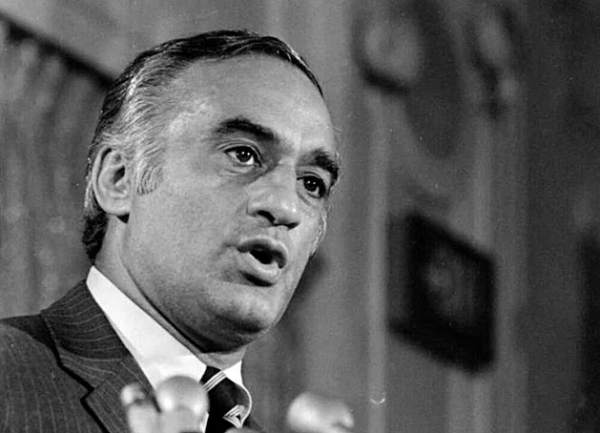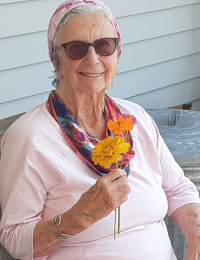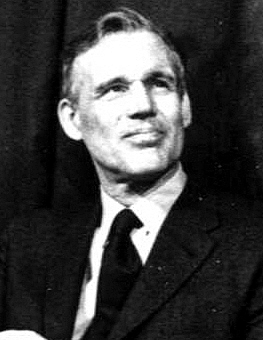January 22, 2025


In the wake of the death at age 101 of former Massachusetts attorney general and lieutenant governor Francis X. Bellotti (above) last month, Judy Meredith, a longtime presence on Beacon Hill as a lobbyist, sat down with civic activist Lew Finfer, an occasional Reporter contributor, to talk about her memories of the Bellotti she knew.
One of the characters in the conversation was former Massachusetts Gov. Francis W. Sargent, for whom Meredith worked in his election campaigns and to whom Bellotti went for advice about the best way for him to get liberals, whom he suspected of a careless bigotry toward Italians, to pay attention to what he was up to as state attorney general. The governor told him to talk to Meredith, who tells about that meeting and other ways that Bellotti served the public while in office:

Francis Sargent
In 1974 I was working for the Office for Children and Gov. Frank Sargent’s reelection campaign. The Office for Children distributed a questionnaire to all the candidates for every state office and Frank Bellotti never returned the questionnaire. Nevertheless, he won the election over the silk-stockinged liberal Republican Josiah Spaulding.
After being the focus of several previous corruption investigations that yielded nothing, and after an earlier loss in an attorney general’s race to Elliot Richardson, Bellotti, concerned about liberal support, asked the progressive Republican Sargent, “Why don’t any of your liberals support me?” Sargent recommended that he talk to me, someone who had worked with many so-called liberal groups and officeholders in my role as a parent advocate for foster and hard to place adoptive children.
We met on the 50th floor of a high-end restaurant, and he started out by belligerently asking that question about the liberals not supporting him. I said it’s “because you are short, dark, and Italian.” He never forgave me for the short answer, but he already suspected the liberals of that careless bigotry toward Italians. But satisfied that I was willing to introduce him to my so-called liberal contacts, he hired me anyway, and had me working before he took office in January. He asked my advice on people to hire and recruit. And he had the instinct to hire some very good ones like Scott Harshbarger, Paula Gold, Steve Rosenfeld, Margot Botsford, and Don Stern, to name a few.
Soon after his swearing in, groups with causes and just people who suffered injustice would request meetings and ask for his help. One of the first was a group of women who worked in publishing and who wanted him to take up their employment discrimination claims.
Frank was a hugger and toucher of women and men he was fond of, so I warned him before the meeting that these were feminists who didn’t like that kind of thing. and I warned the women not to be offended if he reached out for a pat or two. Of course, by the end of the meeting when he agreed to support them, there were hugs all around.
Another early request for support came from Sam Lovejoy, then 28, who had been arrested for destroying a weather tower in Montague as a protest against a proposed nuclear plant. Frank met him, and appreciated his protest against nuclear power. He ended up speaking out in support of the peaceful demonstrators against the Seabrook Nuclear Power Plant in New Hampshire at which many hundreds were arrested.
I usually read incoming mail from outside groups and I read one big package from Massachusetts Public Interest Research Group (PIRG), a consumer reform group that Ralph Nader started with chapters in different states. The cover letter ripped into his office for running a terrible consumer protection department. It also contained many pages on how to set up an effective one that would get relief to violated consumers.
I took off the cover letter and gave the report to Bellotti and said, “They’ve got some good suggestions.” And he agreed and we went out to ask PIRG to help him build and maintain a reformed department. A productive meeting.
Afterwards, he wanted to get around and meet some more liberal groups on the ground, so we started taking field trips every month and meet with groups around the state like we had met with these Mass PIRG people at their office out in Amherst. At that time, I shared my office with a man named Bobby who was the advance man to coordinate these field trips. That was Bobby Travaglini, who later became Senate President.
It was Bobby who pointed out that arson was a major problem in many neighborhoods. There were buildings burning everywhere. A determined and somewhat radical Symphony Tenants Organizing Project had seen some 30 fires in buildings in their Fenway neighborhood. Four people died in one fire and a four-year-old kid in another. They came in to meet with Frank. David Scondras, later the first gay Boston City Councillor, led the group and they made the case.
Bellotti’s office had just installed computers. They were able to track the patterns of fires and insurance paid out. They brought numerous cases and 33 people were indicted for fires in 33 buildings. Those arrested and convicted included state and city arson officials, insurance adjusters, and building owners.
Bellotti said he took this on because, “there’s an absolute lack of deterrents out there and everybody knows it. Arson is a very hard crime to prove, and both because of corruption and a lack of motivation and training, it just isn’t being investigated. As a result, it’s a growing, money-making business.”
Of particular interest to me was a case he brought on behalf of retarded people against the inhumane conditions in Belchertown State School. The case was filed on behalf of the patients at the mental health facility. Normally when the state is sued, the attorney general represents the state in court. After visiting the conditions at Belchertown, Bellotti threw up – in the parking lot there. He came back and told then-Gov. Michael Dukakis that he wouldn’t defend the state. The governor then designated one of Frank’s assistant AGs Steve Rosenfeld to negotiate a closing, which eventually took place in 1992.
These few stories and others taught me the guiding principle of my future lobbying career –present a compelling and sympathetic problem to an elected or appointed official along with an effective and affordable solution that presents a hero opportunity, and they will take it on.
I believe Frank Bellotti was guided by his gut as to whether injustice was going on. And his sense that people deserved justice even if they were not powerful and no one was speaking for them. So, he acted, and we are better for it. He is missed.
Judy Meredith is a longtime public interest lobbyist for the poor, the elderly and the disabled, and their organizations. Lew Finfer works with the Mass Community Action Network.


